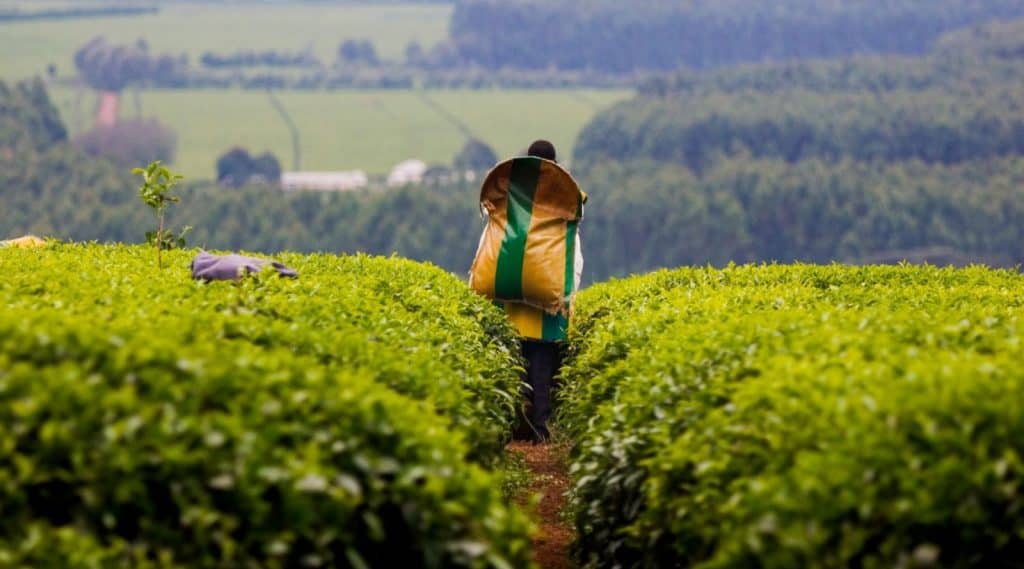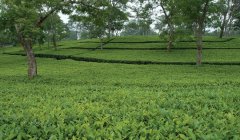Price list of Kenyan black tea and Sri Lankan black tea in 2021 is Bao Ceylon black tea expensive
In May, tea prices fell from the highs triggered by the outbreak, but still higher than expected, as restaurants and cafes typically consume large amounts of excess tea. Auction prices in India, Sri Lanka and Kenya all rose, with some buyers trading at record prices, violating the rules of supply and demand from the start. The surge in domestic tea prices has prompted Indian tea traders to push for a relaxation of import tariffs, which increase costs by 100 per cent. Food and beverage services typically account for 20% of global tea sales. Most of this kind of tea is a commercial CTC (crushed tea, crimped tea) with easy choice and second only to household consumption in volume. Blockades around the world and a severe regional recession caused by the coronavirus have led to the closure of 16000 American restaurants. Market researchers predict that as many as 2.2 million restaurants around the world will close by 2020. Kenya. The East African Tea traders Association (EATTA) said good weather in Kenya's rural tea-growing counties and the minimal impact of the COVID-19 epidemic led to a sharp increase in sales at the Mombasa tea auction. Last week's average price was 208 Kenyan shillings ($1.92) per kilogram, up from the recent high of 194 Kenyan shillings ($1.79). "demand for tea has been tepid in recent months as buyers increased their inventories earlier this year," Etta said. " The surplus may be easing. Last week, the supply of tea increased by 970000 kilograms to 2.1 million kilograms, according to a report in National magazine. Edward Mudibo, managing director of EATTA, told the Star: "any price below $2 is not very good, but we believe the price will improve soon." Although he points out that the prices of some grades are good. In the first six months of this year, tea production increased by 41%. The Kenya Tea Authority reported that 300m kilograms of tea were processed during this period, compared with 213 million kilograms in 2019. During the most recent reporting period, small farmers harvested 46.3 million kilograms of grain in June, of which 26.5 million kilograms came from small farmers. In the fiscal year to June, profits for small producers fell 22 per cent to 69.7 billion Ghanaian shillings ($644 million), the lowest rate of return in the past six years. EATTA noted that during the Covid-19 pandemic, buyers hoarded their warehouses for fear of reduced supply, a move that slowed the purchase of new inventory, leading to a recent 13-year low. Now CIS countries, Afghanistan, Iran and even India are all bidding.

Sri Lanka. In May, the price of tea in Kenya fell to $2.18 per kilogram, while that in Sri Lanka soared to 812.18 Sri Lankan rupees ($4.44) per kilogram. Demand for "low-growing" tea in Sri Lanka remains strong. Buyers bought 6.7 million kilograms at a recent auction, of which 2.6 million kilograms were of low growth. Tea sales (excluding real estate or factory direct sales) totaled 900000 kg. Brokers say demand for high-quality, high-growing tea is improving, with the average price of SLRs534.03 ($2.92), much higher than that of its Kenyan counterparts. According to a report published by Economy Next, the best grades cost 667.82 rupees ($3.65) per kilogram, up 59 cents. Compared with 2019, India's blockade and the severe spread of 2019 coronavirus disease reduced production by 35% in May, causing domestic prices to soar. According to the Tea Committee, tea production was 96 million kg, compared with 134 million kg in May 2019. "this marks a loss of 38 million kg in just one month, a drop of 28%," Rajesh Gupta (Rajesh Gupta), annual editor of Global Tea Digest, told Commercial Line. Bad weather, logistical challenges and recent floods are the main culprits. In the south, the rainy season exacerbated the decline in labour force during the blockade at the peak of the harvest. Production in northern India fell 46 per cent to 133 million kg, compared with 247 million kg in the same period in 2019. Production in southern India has increased slightly, and vegetable garden production in Kerala has increased by 10%. The region harvested 77 million kilograms, an increase of 1.3 per cent over 2018. Prices are going up. An organic Golden Blossom Orange White Milk Tea (TGFOP) offered by Chenehi Tea Garden is reported to have sold for 930 rupees ($12.42) per kilogram. Buyer, Guwahati added Nutrition, online auction. The number of sellers and buyers using the platform has increased steadily due to low barriers to entry, effective cycle time and low-cost sales processes. Our team has successfully added a new group of small buyers across the country who were not part of the auction system before, "said mjunction, who provides a digital auction platform. The B2B e-commerce market was launched during the COVID-19 crisis and is considered to reduce the liquidity required by sellers while facilitating logistics and providing transparency. As domestic tea prices soared, India began to weigh the benefits of importing tea from Kenya and Vietnam. The government currently imposes a 100% tariff on imported tea. According to a report in the Economic Times, the all-India Tea Trade Association (FAITTA) said that imports of tea would be one-off and would not be promoted in the next few years. The debate was heated. So far, Indian tea has been used for re-export and cannot compete with locally grown tea in the domestic market. Growers, represented by the Indian Tea Association, are strongly opposed to tariff reduction. "if traders try to stop importing cheap tea, we will make a request to the Ministry of Commerce," said Vivek Goenka, chairman of ITA. "prices have risen sharply this year due to supply shortages," said Viren Shah, chairman of FAITTA. But we can't pass the price on to our customers because the country's economic situation is not conducive to raising prices. The epidemic has brought economic uncertainty around the world. " The price of CTC tea rose 48% from a year earlier, making imported tea cheaper than domestic tea. Even with a 100 per cent tariff, imported Kenyan tea at $1.84 per kilogram or Vietnamese tea at $1.50 per kilogram is cheaper than the average price of 305 rupees ($4.07) per kilogram for CTC at Calcutta tea auction.
Important Notice :
前街咖啡 FrontStreet Coffee has moved to new addredd:
FrontStreet Coffee Address: 315,Donghua East Road,GuangZhou
Tel:020 38364473
- Prev

Why is the Indian manor boutique black tea expensive? Which manor brand black tea tastes good in Darjeeling?
Tea is a perishable thing. Small farmers who do not have contracts to supply raw leaves to local plantations must line up at locally purchased leaf factories in the hope of getting a reasonable price. As the picked leaves oxidize, their quality decreases every minute, and so does the price. Indian Tea Committee
- Next

Which area of Assam black tea tastes good? Does long-term drinking Assam black tea have side effects?
It is clear that disruptions in rainfall and temperature patterns are affecting the tea industry, and the impact is sure to expand. The drought in Africa has reached a crisis level. In northern Kenya, more than 1 million people face hunger. In India, heavy rainfall has eroded hillsides and destroyed plants. The low-lying areas of Chinese farms are covered with dust
Related
- Can lightly roasted coffee beans be used to extract espresso? How finely should you grind high-quality coffee beans to make Italian latte?
- What is the difference between the world's top rose summer coffee and Yejia Shefi? What are the flavor characteristics of Yega Shefi coffee and Panama rose summer?
- The ceremony is full! Starbucks starts to cut the ribbon at a complimentary coffee station?!
- A whole Michelin meal?! Lucky launches the new "Small Butter Apple Crispy Latte"
- Three tips for adjusting espresso on rainy days! Quickly find the right water temperature, powder, and grinding ratio for espresso!
- How much hot water does it take to brew hanging ear coffee? How does it taste best? Can hot water from the water dispenser be used to make ear drip coffee?
- What grade does Jamaica Blue Mountain No. 1 coffee belong to and how to drink it better? What is the highest grade of Blue Mountain coffee for coffee aristocrats?
- What are the flavor characteristics of the world-famous coffee Blue Mountain No. 1 Golden Mantelin? What are the characteristics of deep-roasted bitter coffee?
- Can I make coffee a second time in an Italian hand-brewed mocha pot? Why can't coffee be brewed several times like tea leaves?
- Hand-brewed coffee flows with a knife and a tornado. How to brew it? What is the proportion of grinding water and water temperature divided into?

